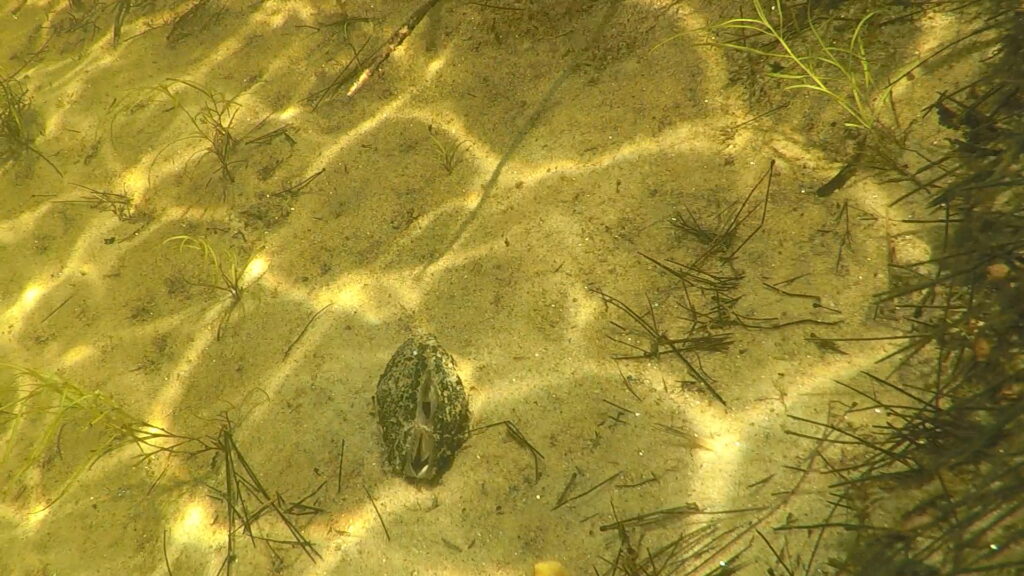
Picture this: an unassuming mollusk sits quietly on a riverbed, filtering up to 15 gallons of water per day. Now imagine thousands of these creatures working around the clock as nature’s water treatment plants, keeping our rivers and streams clean. These silent heroes are our freshwater mussels. Yet despite their incredible ecological importance, freshwater mussels are among the most endangered animals in North America. This summer, our Zoo New England conservation staff have been out helping to survey for some of the rarest ones in our region.
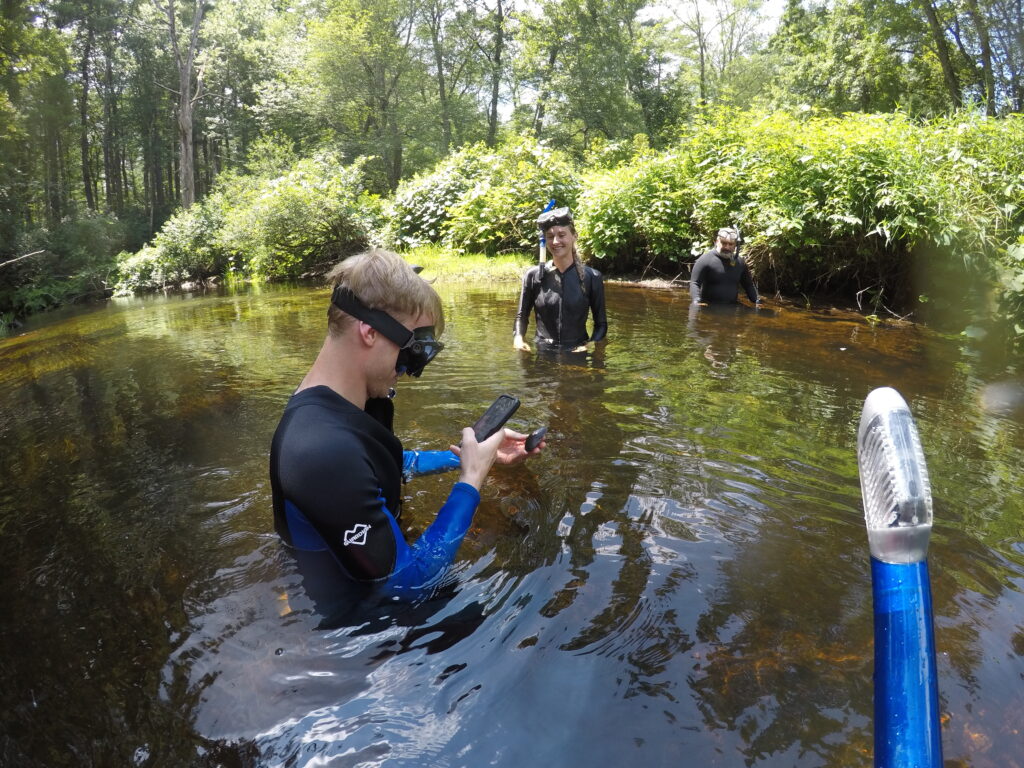
Underappreciated Superstars
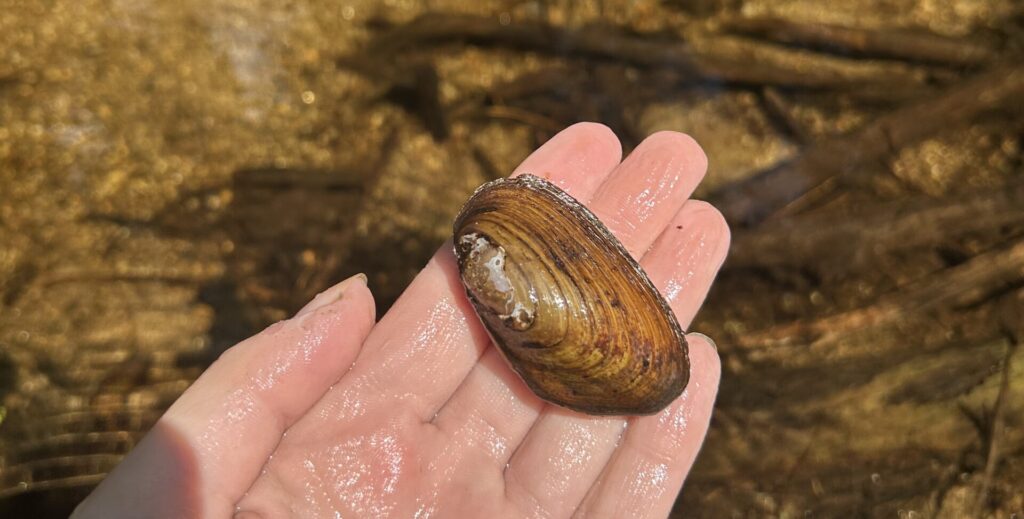
Freshwater mussels might not have the charisma of a tiger or the majesty of an eagle, but they have some fascinating adaptations: they are living water filters, continuously pumping water through their bodies to extract microscopic algae, bacteria, and organic particles for food. In the process, they remove pollutants and excess nutrients that would otherwise cloud the water and fuel harmful algal blooms. They also have a bizarre reproductive strategy: female mussels release larvae called glochidia that must attach to the gills or fins of specific fish species to complete their development. This intricate relationship means that mussel populations depend not just on clean water, but on healthy fish communities too.
Freshwater mussels are also surprisingly long-lived. Some species can live for over 100 years, making them living archives of environmental change. Their shells grow in annual rings, much like trees, providing scientists with decades of data about water quality and ecosystem health.
A Conservation Crisis in Our Own Backyard
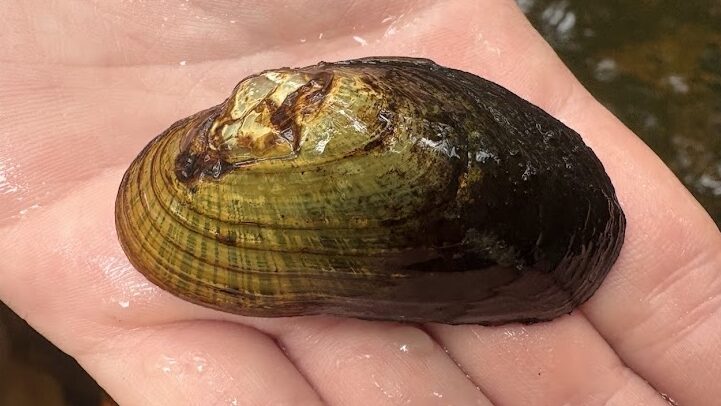
The statistics are sobering. Over 75% of native freshwater mussel species in the U.S. are either listed as endangered or threatened, considered to be of special conservation concern, or are presumed extinct. Here in Massachusetts, the situation is equally dire. Of the 12 freshwater mussel species in Massachusetts, 6 are protected under the Massachusetts Endangered Species Act.
The threats they face are numerous and interconnected: water pollution from agricultural runoff and urban development, dam construction that fragments river systems, habitat destruction, and climate change that alters water temperatures and flow patterns.
The decline of mussels represents more than just the loss of individual species—it’s a warning sign about the health of our entire aquatic ecosystems. When mussel populations crash, water quality deteriorates, fish communities suffer, and the delicate balance that keeps our rivers healthy begins to collapse.
Zoo New England’s Role in Mussel Conservation
Zoo New England is committed to protecting the biodiversity of our region, and while we don’t have a specific mussel conservation program (yet!) our field staff frequent the wetlands and waterways where freshwater mussels live and so we volunteered to help conduct surveys this summer with the Beaver Brook Association in New Hampshire.
One of the threats to mussels is that there simply isn’t enough information known about where they occur and what’s happening with their populations. Documenting their presence and abundance (or lack thereof) is a crucial first step in protecting them.
Over the course of three days, our staff documented hundreds and hundreds of mussels, including the Endangered brook floater mussel, as well as the eastern pearlshell, triangle floater, and, the most common of the bunch: the eastern elliptio.
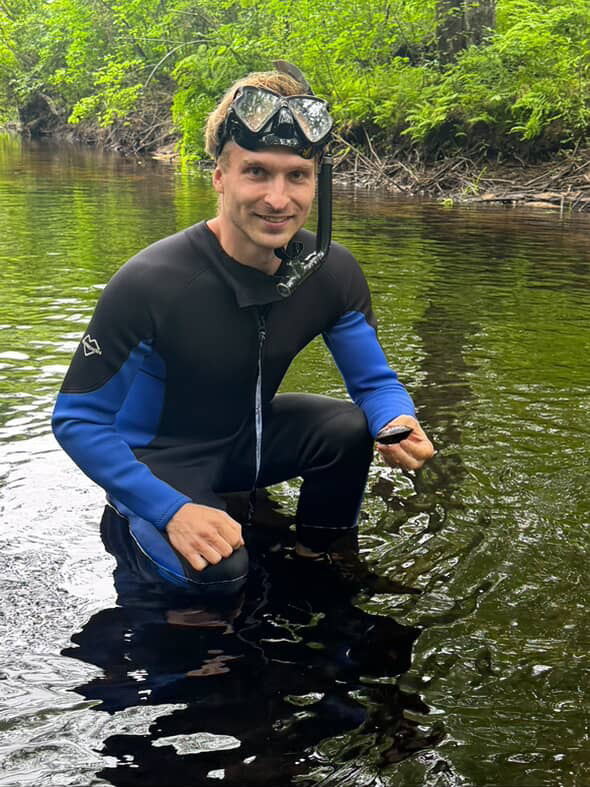
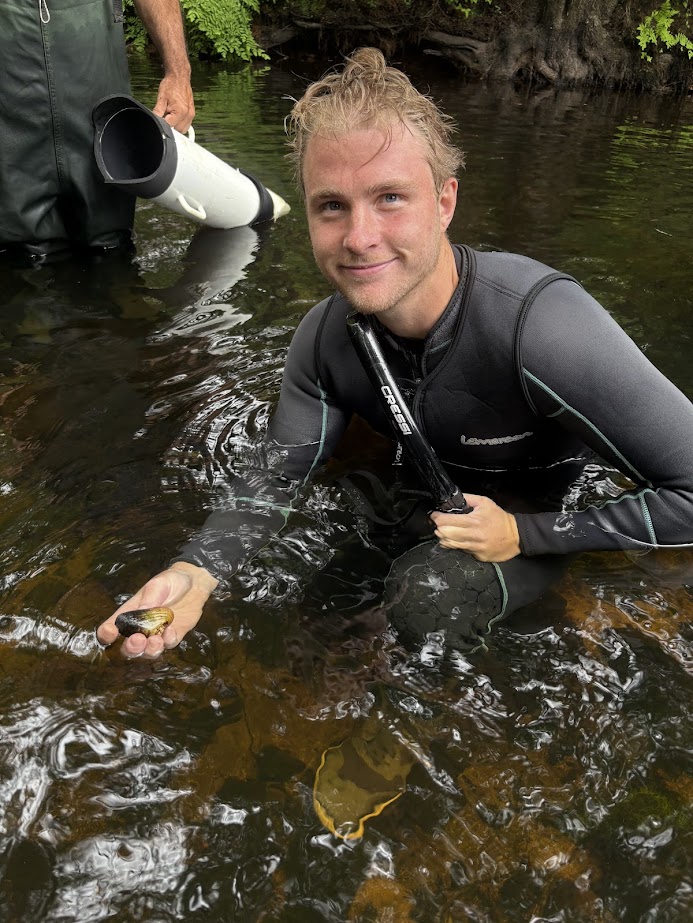
Even though the air temperature was soaring into the 90s on our survey days, staff wore wetsuits and still got surprisingly cold after hours of surveying. Mussel surveying is slow, methodical work. Wearing snorkel masks or using underwater viewing buckets, staff moved slowly upstream at a pace of about 1 meter per minute. Noticing and counting the mussels among rocks, water weeds, and debris is fastidious work, and noticing a rare brook floater among all the eastern elliptio takes a keen eye and a fair amount of luck.
What You Can Do to Help Mussels
- Use phosphate-free detergents and properly dispose of household chemicals.
- Support clean water policies and wetland protection in your area.
- Share what you’ve learned—most people don’t know these incredible creatures exist in our waters!
- And as always: join our Conservation Society to get involved in our local conservation efforts!
